International
Brazil town aspires to be champion of Bolsonaro vote
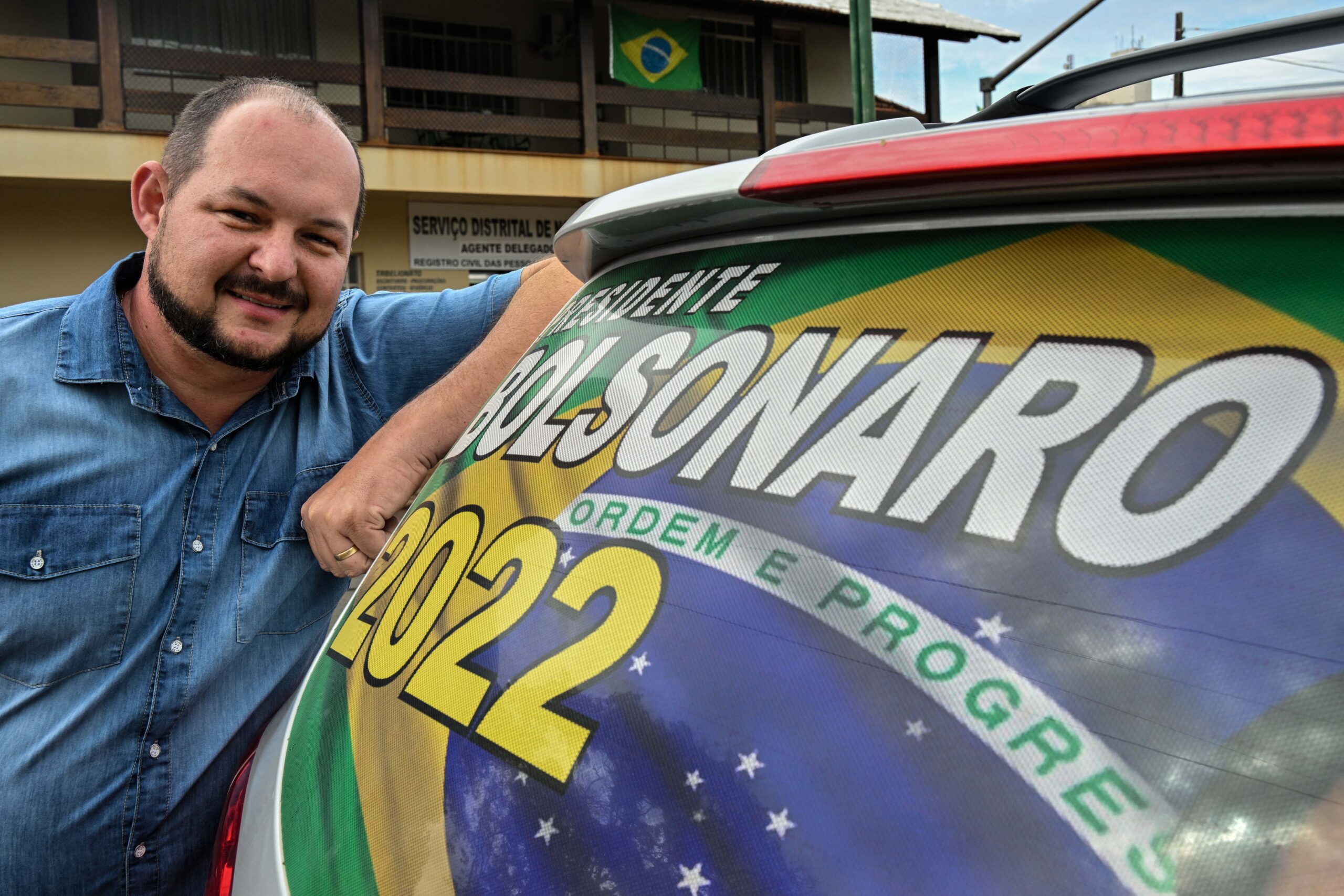
| By AFP | Anna Pelegri |
On Holy Christ Avenue, in front of Bible Square, Brazilian businessman Gilberto Klais buoyantly hops out of an SUV decorated with a giant decal of far-right President Jair Bolsonaro.
Smiling in a denim shirt, the 39-year-old head of the local business owners’ association is a man on a mission: “On election day, the town of Nova Santa Rosa will cast more votes for Bolsonaro than anywhere else in Brazil,” he says.
The small town in the southern state of Parana already voted massively for the incumbent in Brazil’s first-round election on October 2, casting 82 percent of its ballots for Bolsonaro — the second-highest percentage in the country.
Now, as the president heads for a runoff Sunday against veteran leftist Luiz Inacio Lula da Silva, Bolsonaro backers are pushing for an even bigger win.
But this small community of trim little houses surrounded by endless expanses of soy and corn fields has some tough competition, in one of Brazil’s most conservative regions.
The neighboring towns of Quatro Pontes and Mercedes finished third and fifth in the Bolsonaro love fest, voting 80 percent and 78 percent for the former army captain, respectively.
And the town of Nova Padua, in neighboring Rio Grande do Sul state, cast the highest percentage for him with 84 percent.
“Bolsonaro lit our flame for Brazil,” says Klais, who owns a local bakery.
Visitors don’t have to look far for proof: a sea of yellow-and-green Brazilian flags hangs from buildings — a symbol Bolsonaro has adopted as his own — and his smiling face beams from campaign posters all over town.
Opponents’ criticisms of the president — Brazil’s 687 000 deaths from Covid-19, increasing hunger, destruction of the Amazon rainforest — are mute here.
Finding a Lula campaign sign is an impossible task.
Farming is king in these parts, and Bolsonaro, a close ally of Brazil’s powerful agribusiness sector, “has given us security to invest,” promotes “a strong economy,” and upholds God and family “as the supreme good,” says Klais.
“He’s just like us.”
Battle for Brazil’s soul
On his father’s farm, where a feed truck has been turned into a makeshift billboard with Bolsonaro’s slogan — “Brazil above everything, God above everyone” — Ricardo Lorenzatto is on a mission, too: convince at least 200 of the 800 residents who voted for Lula to switch sides in the runoff.
Bolsonaro “promised to visit the city that casts the highest percentage of votes for him,” says the 35-year-old agricultural engineer, his blue eyes alight.
“My heart leaps just thinking about it.”
He is active on WhatsApp message groups rallying the faithful for pro-Bolsonaro events, such as an Independence Day motorcade on September 7, which, he proudly boasts, stretched four kilometers (2.5 miles).
Lorenzatto says ex-president Lula (2003-2010), who the far-right labels a “communist,” is a threat to his children’s future.
If Lula wins, “indigenous tribes could invade our land, force us to share our cattle,” he says.
Holding her one-year-old grandson on her porch, Clarice Radoll agrees.
“I would feel very insecure if Lula won,” says the 60-year-old Evangelical Christian, who has Bolsonaro’s picture proudly displayed on the front of her house.
In this town of a dozen churches and around 6,000 inhabitants, Radoll repeats a line often used by conservative pastors: that Lula represents “moral perversion.”
“It’s every Brazilian mother and father’s fear,” she says.
Agribusiness hero
In Mercedes, just up the road, farmer Andre Fiedler admits Lula’s government also took care of the agribusiness industry during the economic boom of the 2 000s.
“I don’t want to be a hypocrite,” he says.
But Bolsonaro’s administration has backed farming and agricultural exports like no other, “opening new markets for our products,” he says.
He brushes off international criticism over surging Amazon deforestation under Bolsonaro, which experts say is driven by agriculture.
“People say Bolsonaro is damaging Brazil’s image overseas… but that’s just a trade game — protectionism by France, Germany, the United States,” Fiedler says.
“Who’s the biggest soy producer in the world? The biggest poultry exporter? Brazil,” he says.
“There are vested interests trying to hold us back.”
Bolsonaro, who took 43 percent of the vote in the first round to 48 percent for Lula, trails his leftist rival heading into the runoff — but by a narrowing margin, according to opinion polls.
International
Federal immigration agents kill man in Minneapolis, sparking protests and outrage

Federal immigration agents shot and killed a 37-year-old Minneapolis man during an operation on Saturday, authorities confirmed, sparking new protests and deepening outrage over federal immigration enforcement in the city.
The victim, identified as Alex Jeffrey Pretti, was a U.S. citizen and intensive care nurse who worked at a Veterans Affairs hospital and was widely respected in his community, according to colleagues and news reports.
Officials said the shooting occurred during a targeted immigration raid in south Minneapolis. The Department of Homeland Security (DHS) described the incident as an act of self-defense by agents who believed the man posed a threat.
However, videos reviewed by multiple outlets and eyewitnesses show Pretti holding a phone and not displaying a weapon before being pepper-sprayed, tackled by agents and then shot multiple times, raising serious questions about the official account.
The killing comes amid a broader federal immigration enforcement operation in the city and follows another controversial shooting in early January in which Renée Good, a 37-year-old U.S. citizen, was fatally shot by an ICE agent, leading to widespread protests and criticism of federal tactics.
International
Delcy Rodríguez seeks political agreements after Maduro’s ouster
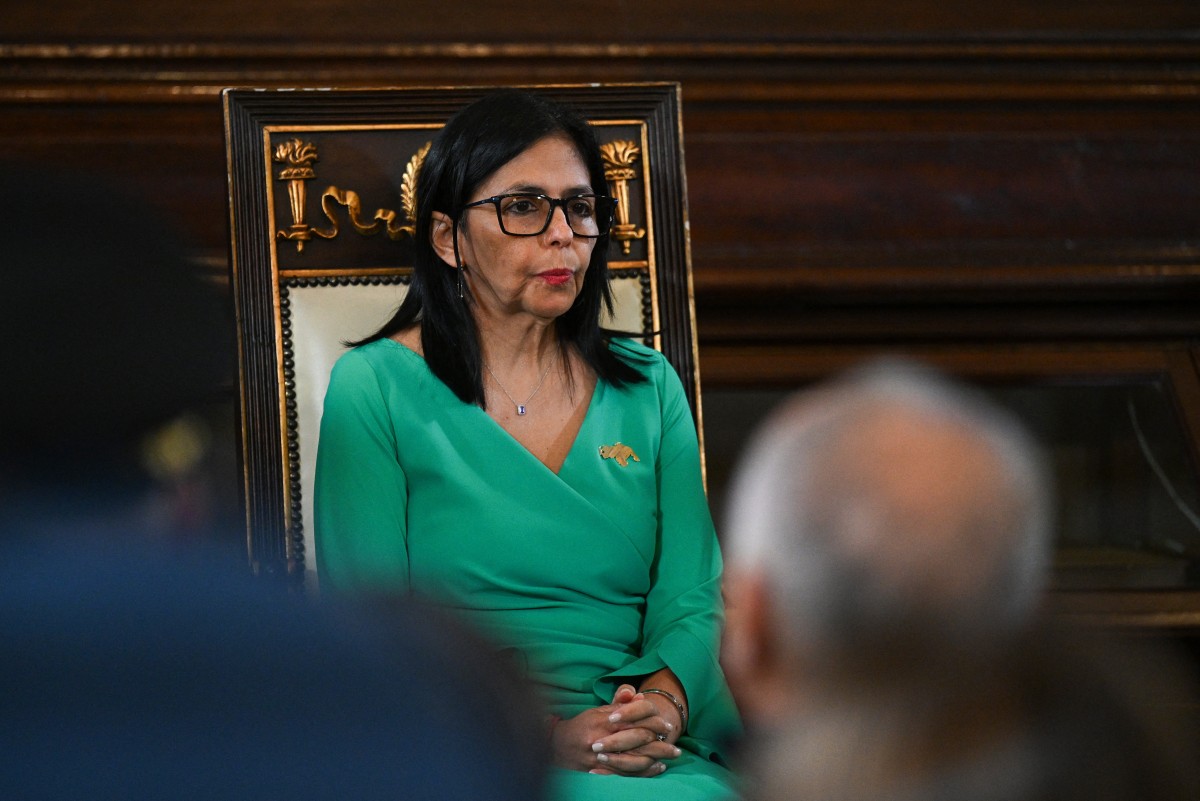
Venezuela’s interim president, Delcy Rodríguez, on Saturday called for “reaching agreements” with the opposition to achieve “peace” in the country, which the United States says it now controls following the military operation that removed President Nicolás Maduro from power.
Rodríguez, who previously served as Maduro’s vice president, assumed interim leadership after the leftist leader was captured on January 3 during a military incursion that left nearly 100 people dead.
In her first public statements since taking office, Rodríguez signaled a shift in the strained relationship between Caracas and Washington, while also committing to the release of a “significant number” of political prisoners.
“There can be no political or partisan differences when it comes to the peace of Venezuela,” Rodríguez said during an address in the coastal state of La Guaira, broadcast on state television VTV.
“From our differences, we must speak to one another with respect. From our differences, we must meet and reach agreements,” she added.
The day before, Rodríguez instructed the head of Parliament — her brother Jorge Rodríguez — to convene talks with various political sectors in the country aimed at achieving “concrete and immediate results.”
International
Bogotá and Quito Seek Dialogue After Tariffs and Power Cut Escalate Tensions
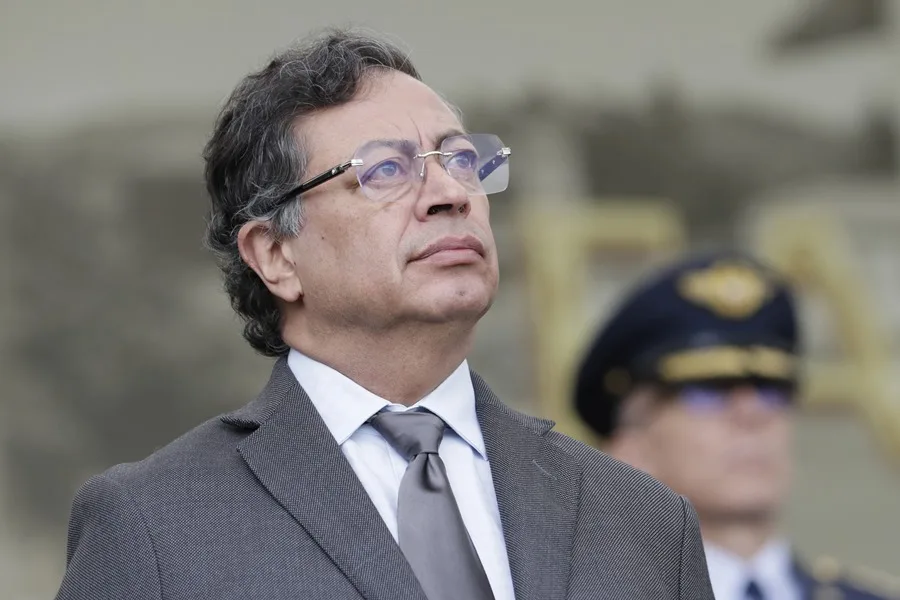
Bogotá and Quito will hold an emergency bilateral summit next week amid recent developments that have strained relations between the two countries.
Tensions escalated this week after Ecuadorian President Daniel Noboa unexpectedly announced a 30% tariff on Colombian imports. Colombia responded with a reciprocal measure, imposing the same tariff on around 20 Ecuadorian products and suspending electricity exports to Ecuador.
Aware that electricity imports are critical to easing Ecuador’s recent energy crises, Quito further imposed a 30% tariff on the transportation of Colombian oil through its territory.
However, recent statements from the Ecuadorian government suggest that dialogue between the two sides has intensified in recent hours. Ecuador’s Minister of Foreign Affairs, Gabriela Sommerfeld, confirmed that active conversations are under way.
In Colombia, segments of the business sector have welcomed the prospect of negotiations. The National Business Council (Consejo Gremial Nacional, CGN), for instance, urged both governments to restore commercial relations, warning that the dispute “puts jobs and regional economic stability at risk.”
-

 International5 days ago
International5 days agoMexican influencer “La Nicholette” kidnapped in exclusive area of Culiacán
-

 International4 days ago
International4 days agoTrump to invite Venezuela’s interim president Delcy Rodríguez to Washington
-

 Central America4 days ago
Central America4 days agoMazatenango Carnival cancelled amid State of Siege in Guatemala
-

 International5 days ago
International5 days agoMajor winter storm to blanket U.S. and Canada with snow, ice and arctic cold
-

 International4 days ago
International4 days agoMarkets rise as Trump halts Europe tariffs and floats Greenland agreement framework
-
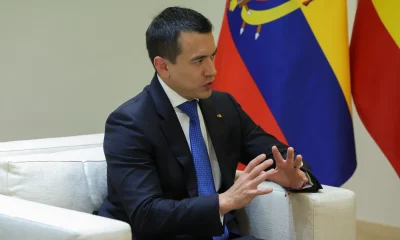
 International5 days ago
International5 days agoColombia slams Ecuador’s 30% tariff as ‘economic aggression’
-

 International5 days ago
International5 days agoTrump announces preliminary NATO agreement on Greenland, suspends tariffs on Europe
-

 International4 days ago
International4 days agoVenezuela’s interim president predicts 37% increase in revenues for 2026
-

 Internacionales3 days ago
Internacionales3 days agoMajor winter storm threatens “catastrophic” ice and snow across much of the U.S.
-

 International4 days ago
International4 days agoJapan reopens Kashiwazaki-Kariwa Plant despite public concerns
-

 International2 days ago
International2 days agoTrump-Era Defense Plan Prioritizes Border Security and Scales Back Global Commitments
-

 International4 days ago
International4 days agoFour minors killed in deadly clash between FARC dissidents in Colombia’s Amazon
-

 Central America3 days ago
Central America3 days agoGuatemala’s president rules out negotiations with inmates after prison riots
-

 International3 days ago
International3 days agoGuatemala considers sending high-risk gang members to military prisons
-

 International2 days ago
International2 days agoBogotá and Quito Seek Dialogue After Tariffs and Power Cut Escalate Tensions
-
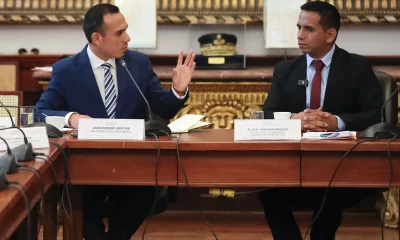
 International5 days ago
International5 days agoJosé Jerí claims destabilization attempt after videos of secretive meetings surface
-

 International1 day ago
International1 day agoDelcy Rodríguez seeks political agreements after Maduro’s ouster
-

 International3 days ago
International3 days agoRights group says over 5,000 killed in Iran protests, mostly civilians
-

 International1 day ago
International1 day agoFederal immigration agents kill man in Minneapolis, sparking protests and outrage


























